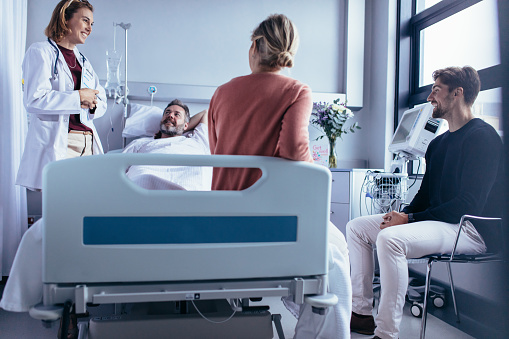
Welcome back to the weekly health news summary. This blog will cover the key stories that occurred from 13th to 25th of October. This week new genes linked to breast cancer have been discovered, vitamin D could help to decrease type 1 diabetes risk in children and the NHS abandon plans to hire spare “Airbnb” rooms. Data released this week show that the number of patients be readmitted to hospital within 30 days of discharge has risen by nearly a quarter over the last four years.
Inherited genetic variants that increase the risk of breast cancer by a fifth when combined have been highlighted by scientists this week. In addition to these genes they found 10 further genetic variants that are linked to more resistant breast cancers that do not respond to hormone treatment. The discovery of these genes could impact on the treatment of patients with breast cancer as well as giving an indication as to which patients are most at risk of developing the disease.
Researchers who followed a large cohort of children with a family history of type 1 diabetes found that high vitamin D levels may lower their risk of developing the condition. Those in the study with higher blood vitamin D levels had a lower risk of producing antibodies that cause type 1 diabetes. The study only included children at high risk of developing type 1 diabetes so it is not clear whether the same affect would occur in the general population. Currently it is recommended that all children up to the age of five years old take a daily vitamin D supplement.
The NHS were in discussions to offer homeowners £50 per night for their spare rooms. The start-up company CareRooms were in talks with NHS trusts in Essex to link members of the public with spare rooms with patients who have had a minor procedure. Currently these patients are occupying beds in hospitals as they live alone so do not have anyone to help them during recovery. However, the pilot scheme has been abandoned due to safety risks as “hosts” are not required to have any previous care experience.
The number of patients in England being readmitted to hospital within 30 days of being discharged has risen by almost a quarter over the last four years. The figures which were gathered by Healthwatch indicates that one in five of the re-admissions happen within 48 hours of patients being sent home. The data does not indicate the reasons for re-admissions but the figures have raised concerns about patients being discharged too early in a bid to free up beds.
Words: Joelle Booth
